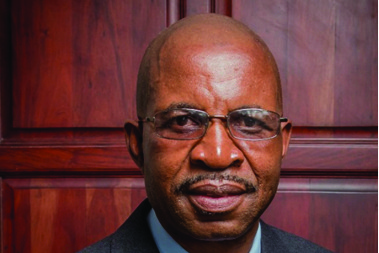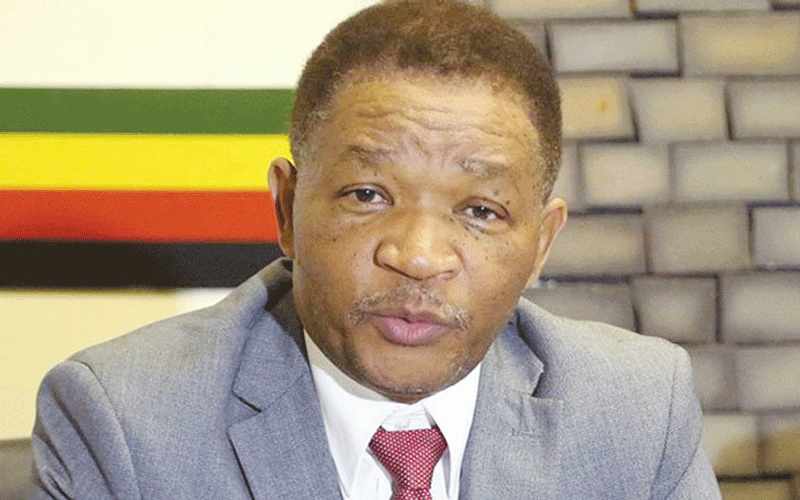
Guest column: Cyprian Muketiwa Ndawana
DEPOSED late former President Robert Mugabe is currently the most talked about individual among Zimbabweans. Ever since his death last week, tongues never took leave from wagging. His death was bound to ignite an inferno of debates and discussions.
As I see it, he was a hero to some and a zero to others. Those who loved him did so with passion, while those who hated him also hated him with passion. It is apparent that he was an angel personified to some, and the devil incarnate to others.
It is against this backdrop of polarisation that his death divides opinions as did his life. His later years in office were also talked about because they were punctuated by rapid visits to Malaysia for medical care. No wonder, news of his death came as no surprise to citizens.
His failing health, coupled with his ripe age, entailed that the curtain was destined to come down, sooner rather than later. Also, resentment over his induced stepping down from the highest office in the land in November 2017 might have hastened his ailing.
It stung him chillingly that the military, which had long been his fort, had turned against him. He felt the sting which Caesar felt when Brutus stabbed him. One school of thought believes that was the day he significactually “died”. His health took an accelerated downwards slide.
Throughout his rule, Mugabe banked on the military. He deemed himself invincible. It was inconceivable to him that he would ever be at odds with men in uniform. Therefore, he was roused to the core when military hardware was strategically positioned in the streets of Harare without his command.
Military intervention during his deposal crushed his ego with the weight of a tonne of bricks. Although Mugabe was aged and tired, he could not reconcile himself to being retired. After all, the military had buffeted him not once, but severally. He bragged about his degrees in violence. It was his bulwark after he lost to his nemesis, Morgan Tsvangirai in the 2008 elections.
- Chamisa under fire over US$120K donation
- Mavhunga puts DeMbare into Chibuku quarterfinals
- Pension funds bet on Cabora Bassa oilfields
- Councils defy govt fire tender directive
Keep Reading
However, every man, king or commoner, ultimately meets with death at some point in life. Now, with him having met with destiny, the question uppermost in the minds of citizens is how his legacy ought be remembered.
As I see it, Mugabe left a severely wounded legacy. He was a leader who abused not only the office he was privileged to hold, but the gift of longevity which he was blessed with. His domineering inclinations were fully complemented by his malevolent instincts. He was red in tooth and claw.
He believed strongly in heavyhanded crackdowns. He had a well-oiled repression machinery in the form of the police. Whatever demonstration that took place, be it students, workers or civil servants, he resorted to unleashing police details who were ruthless like predators.
He announced his malevolence in earnest and in such decisiveness as magnified in the Midlands and Matabeleland massacres, known as Gukurahundi. Many people had their dear lives snapped in assaults that occurred immediately after attaining nationhood.
Although he later set up a commission of enquiry, sadly, he cunningly withheld the findings from the public domain, only to subsequently describe the atrocities as a moment of madness. Obviously, as I see it, this insensitive brutality is the bedrock of his legacy.
There is a long list of people who were abducted, never to be seen again. Despite wide reportage on the disappearances, none of the victims were ever accounted for, be it dead or alive. Their families are still desperate to know the fate that befell their dear ones.
Among the notable fortunate ones who survived ordeals, were his political opponents, the late Tsvangirai, his successor, Nelson Chamisa and media personality, Jestina Mukoko. Images of how they looked after severe assaults are an apt epitome of the legacy Mugabe leaves.
He was aversed to criticism. He pounced on opponents, even imagined ones, habitually as did Okonkwo of Chinua Achebe’s famed novel, Things Fall Apart. It was public knowledge that Mugabe ruled by the sword. Fortunately for him, he did not die by the sword, although it may have been so in light of the November 2017 coup.
His successor, President Emmerson Mnangagwa, was summarily dismissed from the ruling Zanu PF party and government. Despite their being decades long bosom buddies, he was hauled under the bus, stripped of all and sundry that were his entitlements as Vice-President. He was hung to dry.
A Press statement accused Mnangagwa of conducting himself without probity, yet, in fact it, was Mugabe who was conspicuous by his dearth of probity. True, he availed education, yet equally true, he conversely destroyed industry resulting in citizens leaving the country in droves.
Despite being fortunate enough to inherit the breadbasket of the region, Mugabe destroyed the commercial sector which was renowned for sufficiently feeding the nation plus exporting to other countries. He rendered a deadly blow to the then vibrant farming community which was a dependable foreign currency earner.
His legacy is that of leaving the country with a deficit of food. Now, thorns and thistles grow where cash crops used to abound. Nationwide, granaries stand as symbols of the good old days. All agricultural marketing parastatals are in advanced stages of delapidation due to under-utilisation.
Oftentimes Mugabe delivered below the belt punches on fellow cadres, many of whom he robbed of privileges of national hero status. A case in point are flimsy reasons he cited in denying honours to Ndabaningi Sithole, Lookout Masuku and Amos Midzi, among others.
At independence, Mugabe inherited a bullish financial market. Now, the same financial market cannot be said to be even bearish. He grudgingly stepped down leaving the country with no currency at all. Hence, his legacy is of an ailing financial sector notorious for bank closures.
Yet, Mugabe was a leader who on one hand lavished those who idolised him, while on the other he brutalised those with misgivings over his despotic rule. This trait was noticeable in Cabinet post allocations which favoured those who dared not to scruple.
It was for assuaging his intense hate for disputants that his inner circle capitulated into crowning him the centre of power. By all accounts, Mugabe was self-centred; he had no tolerance for divergence. He demanded unquestionable obedience to him.
As I see it, a hero is recognisable by going the extra mile for public good. As such, by abandoning his homeland for the comfort and convenience of a far away continent, Mugabe has no legitimate claim to hero status; not even as a Pan Africanist.
His death was long in coming. It offered him ample time to gather himself and apologise for atrocities and bankrupting the country. Yet, in his typical arrogance, Mugabe bragged that he did not vote for Zanu PF and did not want to be buried at the National Heroes’ Acre.
Despite his lengthy rule culminating in dire poverty and dysfunction of infrastructure, Mugabe was strangely esteemed by government to be conferred national hero status. How a leader whose rule was so ruinous that basic utilities like running water, electricity and fuel are hard to come by could be celebrated is a decision akin to appointing a rapist boarding master at a student nurse hostel.
It is a misnomer for governance norms to honour a man whose destructive trail is evident nationwide. There could not have been a nobler way of enshrining Mugabe than a private funeral ceremony.
As I see it, government is anointing the devil by flying flags at half mast. It is being prodigal with scarce resources by decorating a dust cloth.
Inherent in his death is the opportunity to cleanse the country of his vestiges. Henceforth, his name must be removed from our airport and roads. He falls markedly short of a hero. My sympathy actully is to the military which will salute the corpse of a man they helped depose.
Cyprian Muketiwa Ndawana is a public speaking coach and motivational speaker. He writes in his personal capacity.











